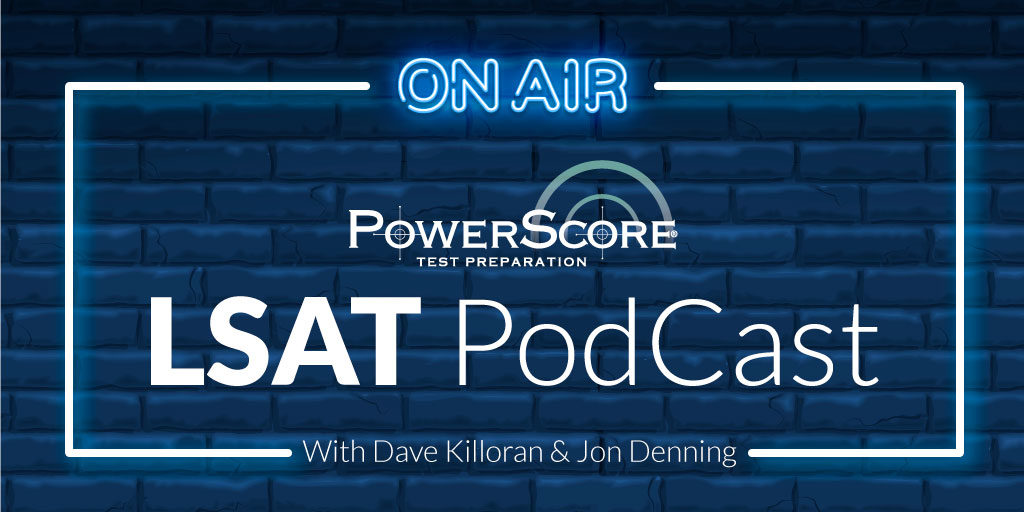After getting sidetracked by weeks of LSAT-Flex announcements and a barrage of student questions, Jon and Dave are back to wrap up their discussion of how to improve your speed in Logic Games! Tune in and hear them cover the key elements to focus on in each game, proper time management (despite a potentially incomplete setup), when to skip questions and how to best return to them later, and even proven strategies for times when things feel truly incomprehensible.
Timestamps
0:00 – Intro. Jon and Dave pour their favorite tequila drinks and preview today’s topic with Tame Impala’s epic “Let It Happen.” Listen to the first How To Get Faster At Logic Games episode here.
5:16 – This week in the LSAT world. A preview of a special free webinar on 5/12 that Dave and Jon are hosting to advise students on what to expect and how to succeed on the May and June LSAT-Flex tests. Sign up to attend and get your unique questions answered here.
8:55 – Our goal with this episode is to provide you with tools so that you have a built-in infrastructure to critically pick out what you’re looking for when you begin any Logic Games section and how to fluidly navigate the briar patch of challenges this section throws you into.
Managing the Logic Games Section
13:27 – Focus on the absolutes. The key to speed is considering what must and cannot occur, not what might be allowed; truths > possibilities.
17:13 – Inferences. The first step is linkage, but then you must consider implications.
21:38 – Don’t be afraid of an incomplete setup! Make as many inferences as you can at the outset, but success in games often comes more from forward progress than comprehensiveness (you can survive a setup with some missing parts, but you’ll never get more time).
35:23 – Be nimble through the questions. You don’t have to do the questions in the order given: LSAC is not charitable and rarely arranges questions in the order you’d prefer, so move around within them to gain maximum advantage.
43:00 – Don’t over-invest in any single game or question. You have to get more out than what you put in; if a question takes you 4 minutes, you’re probably not getting enough out for that time investment.
44:19 – Focus on Exceptions from the norm in the questions. Could and Must and Cannot are normal; False and Except are not–take note when you see them (same for Justify and Rule Substitution questions).
48:58 – Consider different routes through the game and realize some techniques are situation-dependent. How limited is it–should you make templates? Are there are lot of numbers–look at distributions. Don’t just think of games as a single type, such as Linear or Grouping–look for additional elements. (Recognizing Templates and Limited Solution Sets episode)
53:51 – Triage: strategies to maintain momentum. Never sit still, create hypotheticals, and use the questions and answer choices to determine how the game operates or is best attacked/set up.
59:12 – Be positive! Find strength in the tools and techniques that you have at your disposal no matter how difficult the section is. (Additional resources on Test Mentality)
1:01:35 – Outro.


Leave a Reply